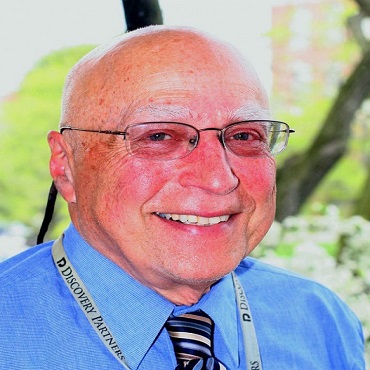Scientific Program

Dr. Michael Retsky
Emeritus Professor, Harvard TH Chan School of Public Health, USA
Title: Method to Prevent Early Relapses in Cancer
Biography:
Michael Retsky completed his PhD in experimental physics from University of Chicago in 1974. He was doing physics research at Hewlett-Packard in Colorado Springs. After a friend's wife was diagnosed with cancer, an informal research group began that eventually captured Retsky's interest more than physics. He made a career change to cancer research in 1982. He was Prof of Biology at University of Colorado and Visiting Prof at University of Texas- San Antonio. He is now on staff at HSPH and has a small business start-up focusing on late relapses. He has three patents pending. He has published over 90 papers in physics and oncology. He edited a book titled Perioperative Inflammation as Triggering Origin of Metastasis Development, published by Springer Nature in 2017.
Abstract
Most current cancer research aims to prevent cancer patients from dying from metastatic disease. My colleagues and I aim to solve the problem upstream, i.e., to prevent relapses. We were confronted some years ago with the unexpected observation of bimodal relapse patterns in breast and a number of other cancers. This was not consistent with the current cancer paradigm that has guided early detection and therapy for many years. Our multidisciplinary colleagues include surgeons, medical oncologists, anesthesiologists, biologists and physicists. After much analysis including computer simulation and input from these medical and scientific specialists, we eventually came to the conclusion that surgery to remove the primary tumor produces systemic inflammation for about one week after the surgery. This systemic inflammation caused dormant single malignant cells and avascular micrometastases to exit from dormancy and result in relapses in the 3 years after surgery. Those relapses comprised the early peak. We have determined that in breast cancer 50 to 80% of relapses (increasing with tumor size and positive nodes) are in the early peak so an effective method to prevent these relapses would be extremely important. It was then determined in a retrospective study that the common inexpensive perioperative NSAID ketorolac can prevent the early relapses. A second retrospective study strongly confirmed this result but a small prospective study found no advantage. Recent developments include a study by Krall (Science Translational Medicine 2018) that demonstrated a mouse model that supports our hypothesis.
- Biomarkers
- Prognosis, Diagnosis and Prediction
- Lifestyle and Medication
- Cancer Therapies and Therapeutics
- Immuno-Oncology
- Molecular Genetics
- Drug Development
- Nanotechnology for Biomarkers
- Emerging Therapeutic Biomarkers
- Clinical Research & Biomarkers
- Biomarker Testing
- Advances and Future Perspective

